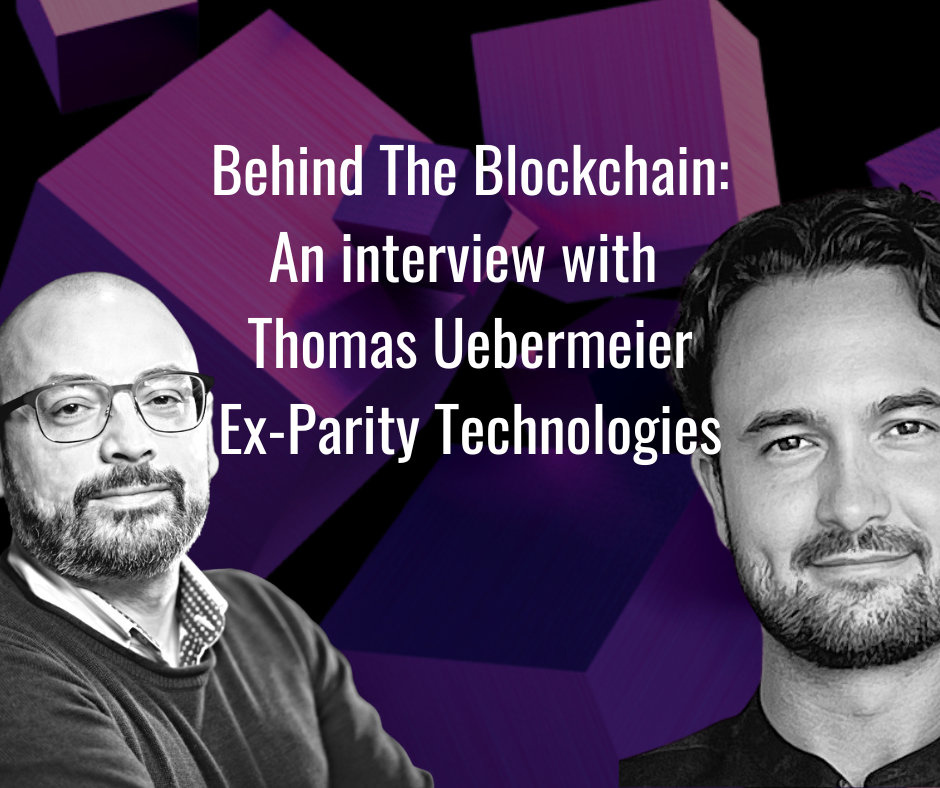How to make a career in Blockchain
- Jack Goodridge

- Sep 27, 2022
- 4 min read
Updated: Oct 19, 2022
The world is changing at a lightning pace. The digital revolution has changed how businesses are run. New services are being created and they're changing how businesses and people interact with each other. There is one technology that promises to have a paradigm-shifting impact: Blockchain.
In Web3 and Blockchain the demand for talent is high, however the supply is low - a perfect time for you learn the skills needed to thrive in the not-too-distant future. As a software engineer why not get ahead of the curve, learn about blockchain, learn about smart contracts, learn about how businesses are being built in the world of Web3. In a few years time your experience would be invaluable!
Let's explore what blockchain is and how you can make a career out of it as a software engineer.
What is Blockchain?
Blockchain is a digital ledger that records transactions between two parties on a distributed network. It’s an open, decentralised database, which means it can be accessed by everyone who has access to the internet. A blockchain is ideal for peer-to-peer transactions because there’s no single, central administrator to verify the exchange. Instead, the network collectively verifies each transaction through consensus.
What can Blockchain do for you?
Transparency - Each record in the ledger is verified for accuracy by all the nodes in the network. This ensures no one can make false entries in the ledger. A simplified example - If a supplier in your supply chain uses blockchain to track a product, you will know its journey from raw material to its final destination. Imagine you are a big brand like Nike. You buy the raw materials from a supplier. The supplier then uses blockchain to track the raw materials before it ships them to a factory. The factory uses the blockchain to track the finished shoes. These shoes are then shipped to a distributor and then to a retailer. There are thousands of people involved in the process of making a pair of Nike shoes. They all use the same blockchain network to track the raw materials, the manufacturing process, and the finished product. This kind of transparency and visibility is unprecedented.
Decentralisation - Visa and Mastercard are the most widely used forms of payment. They are also examples of traditional intermediaries like banks and payment gateways. These intermediaries act as a trusted third party that authenticates and facilitates a transaction. Blockchain makes it possible to create peer-to-peer transactions directly. They can do so without a third party or a trusted intermediary.
Autonomy - Smart contracts are computer protocols that facilitate, verify or execute the terms of a contract. They are written in computer code and stored on the blockchain. E.g. When a customer places an order on your website, the blockchain receives the order and sends a request to the supplier’s blockchain. The supplier blockchain sends back an automated confirmation that the order has been received. The customer’s blockchain receives the confirmation and sends the payment to your blockchain. The blockchain has verified the order and payment. It has also triggered the order for shipment and sent the information to the shipping company blockchain.
How to Build a Career in Blockchain?
The first step in building a career is to understand what blockchain is and how it works. This can be done by looking at the various use cases for blockchain and what problems it is trying to solve.
Once you understand the technology and its uses, you can identify the skills and traits needed for a career in blockchain and can then start to build your skill set. This can be done by taking online courses, reading books, or joining communities where blockchain enthusiasts discuss the latest trends and developments. Keep in mind that blockchain is still a new technology, and it will take time for it to mature and evolve.
For a career as a software engineer there are a couple of routes you could choose and they really depend on what you'd like to do. To make things easy we'll split the roles in two - Core Blockchain Engineer and Software Engineer.
A Core Blockchain Engineer will have experience of creating Smart Contracts on the the blockchain using tools such as Solidity. You might know other programming languages such as Rust or Golang and have a deep understanding of various blockchains such as Ethereum or Solana.
A Software Engineer in blockchain/Web3 will be building distributed applications (dApps) that are deployed on top of the blockchain. These apps could include things such as exchanges, NFT market places, play-to-earn games or tools used by other Web3 companies. There are plenty of skills you could learn and different businesses will look to recruit different mixtures of those technologies:
You could look at learning various programming languages - Golang, JavaScript, Typescript, Rust or Python
On top of that many companies will ask for experience or exposure to different database related tools - PostgreDB, MongoDB, Kafka, Redis, ElasticSearch, Hyperledger to name a few but the list goes on.
Experience with development tools such as Git, Docker or Kubernetes could be useful.
Finally, experience of web3 technologies - Solidity, Solana, Ethereum. Vyper, Chainlink, Polkadot for example.
To make things really confusing, you could be a mixture of both of the above!
If you would like more information about the tools you could learn, this blog written by Startup Stash has a list of tools you could look at https://startupstash.com/smart-contract-tools/
Finishing up...
The world is changing at a lightning pace. Make yourself indispensable, invaluable and an asset to every business in the future - learn about Blockchain, Smart Contracts and Web3.
Would you like an exploratory conversation about anything included above, are looking for a new position in Web3 using Blockchain or are you recruiting for people with any of the above skill sets? We'd love to hear from you!





Comments